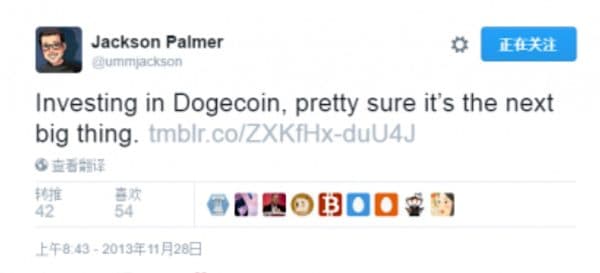When a new technology emerges, the word ‘disrupt’ is utilized to highlight the wonderful features to be developed and promises to be fulfilled. Since blockchain technology gained popularity in the last decade, the term blockchain has been linked to the term ‘disrupt’ almost as a compound word.
But if blockchain is disruptive, and if to disrupt means ‘to change an industry’ what are the industries blockchain have changed so far?
Nothing is perfect in this world, so let’s take a look at some of the great things blockchain is aiming to do for us while also identifying those that aren’t so good.
The Good
Social Impact
Blockchain can be implemented to foster inclusion and is used to provide access to financial services for billions of people around the world, especially for those living in underserved communities. People living in rural communities lack the infrastructure, transportation, and education needed to access traditional banking systems. Many people in these communities don’t own a personal form of ID or a physical address, making it impossible for them to try and open a bank account.
“Blockchain-based companies have the opportunity to offer services that traditional banks cannot afford or do not want to offer, and can move those without access to traditional banking services away from a cash-only environment.”
Cryptocurrencies eliminate the need of middlemen and building expensive banking infrastructures. Blockchain technology also allows crypto transactions from any mobile phone, even those without internet connection. As a result, the process is simpler and makes financial services accessible to a larger part of the population.
Environment
Blockchain technology can also make an impact on the environment. Environmental offsets such as carbon credits are a solution to reversing the environmental destruction after years of abuse against the land. Carbon credits put a price on carbon reductions and provide revenue for projects protecting the rainforest. The solution empowers companies and individuals to reduce or offset the negative impact of their business and choices on the environment. But since the beginning, carbon trading has suffered from some issues that have damaged its potential.
Lack of visibility within the market prevents people from trusting the carbon credit as an asset. The process of calculating carbon emissions and trading credits is usually manual, time consuming and an expensive process.
But by incorporating blockchain technology, the process of accounting and offsetting can be dramatically simplified, and therefore ultimately help to reduce costs.
Blockchain technology integrates the entire process of measuring and offsetting carbon credits into a digital token on a public blockchain network. Blockchain redeems the underlying carbon offset and provides a trustworthy solution for all participants involved.
The Bad
Energy
One of the biggest criticisms blockchain technology receives is the consumption of an exorbitant amount of energy: “Proof-of-work, also known as ‘mining’, is the culprit behind Bitcoin’s energy waste.”
The electricity demands comes from the computing power required to mine bitcoin. The ability to generate new units of cryptocurrency is only possible by solving complex mathematical puzzles:
“These puzzles are designed to get more complicated as bitcoin’s network grows, thus requiring even greater computing power.”
Mining uses a huge amount of energy. In fact, it has been estimated that Bitcoin alone has the same environmental impact as approximately 2.358 million cars annually in terms of CO2 emissions. Last may, an article by the Independent published a study by economist Alex de Vries explaining that by the end of 2018 Bitcoin mining is set to consume 0.5 per cent of all the world’s electric energy.
Although, the energy issue might not be as bleak as the media makes it out to be. Other blockchain experts argue that de Vries estimations were intentionally misleading:
“The average cost per transaction isn’t an adequate metric for measuring the efficiency of Bitcoin’s PoW, it should be defined in terms of the security of an economic history. The energy spend secures the stock of bitcoin, and that percentage is going down over time as inflation decreases. A Bitcoin “accumulates” the energy associated with all the blocks mined since its creation. LaurentMT, a researcher, has found empirically that Bitcoin’s PoW is indeed becoming more efficient over time: increasing cost is counterbalanced by the even greater increasing total value secured by the system.”
Speed
In Deloitte’s 2018 Global Blockchain Survey over 70% of executives claimed “at least a broad understanding of blockchain” the survey results going on to show “greater speed” as the most significant advantage of blockchain and that “permissioned blockchains” is where executives are focusing their attention.
Reality paints a much less “magical” picture of how technology works, blockchains are very inefficient.
The Bitcoin network, for example, is only capable of processing a maximum of seven transactions per second — for the millions of users worldwide.
Aside from that, transactions are recorded only once every 10 minutes. The speed, cost and inefficiency of Blockchain when compared to traditional databases are inferior. The tradeoff is that it removes the need for trust, which is valuable for some purposes, but not all.
The Ugly
Non-purpose blockchains
In January 2018, Dogecoin, an altcoin similar to Bitcoin, reached over $1 billion in capitalization. Dogecoin is another cryptocurrency, that much like bitcoin, enables peer-to-peer transactions across a decentralized network. The only thing special about the coin is that it started as a joke.
Back in 2014, one of the most popular memes was a dog: a Shiba Inu, more commonly known as a “Shibe”. In addition, ‘altcoins’ and crypto-trading was increasing in popularity all over the internet. Both topics were trending. At this point, Jackson Palmer, a Sydney-based marketing geek, decided to tweet, as a joke:
“Investing in Dogecoin, pretty sure it’s the next big thing”
The tweet received a lot of attention, including from Billy Markus, a Portland-based software engineer, who contacted Palmer about making Dogecoin a reality. Additionally, Palmer decided to keep the joke going: “He bought the Dogecoin.com domain and uploaded a photoshopped Shibe on a coin. He left a note on the site: If you want to make Dogecoin a reality, get in touch.”
The rest is history… Dogecoin might not transform the blockchain, but it does have one of the largest communities of any cryptocurrency out there.
 ICO Scams
ICO Scams
“ICOs are like if the Wright brothers sold air miles to finance inventing the aeroplane” – Matt Levine
Of course, this article wouldn’t be complete without a special mention to some of the most important ICO scams to date. One of the main problems for legitimate startups to grow is dealing with scams that severely damaged credibility amongst the mainstream audience.
Bitconnect described its currency as:
“The moment you acquire BitConnect Coin it becomes an interest-bearing asset with 120% return per year. It is that simple.”
But by January 2018, the lending platform and cryptocurrency exchange was closed leaving their investors coins worthless.
According to Cointelegraph, OneCoin, “is officially labelled as a clear ponzi scheme” and was fined €2.5 million by Italian authorities.
More recently, Pincoin and iFan, both run by the same company operating out of Vietnam, “are believed to have swindled around 32,000 investors of a combined $660 million.”
Unfortunately, these are only a few bad apples amongst many infamous projects.
There are still key infrastructure changes that need to take place before blockchain technology can actually ‘disrupt’ every industry. Slowly, the emerging crypto space is evolving, blockchain-based companies are creating infrastructure to solve energy demands and ICO fever has finally calmed down.
As key players work together to further legitimize the space, we might actually reach a point where blockchain will become the underlying technology in every industry we know.
Pedro Anderson is the Founder and COO of Winding Tree. Pedro is a social entrepreneur, fundraiser and proponent for decentralized systems. Prior to Winding Tree Pedro sold millions of dollars of SaaS products and raised funding for numerous non-profit projects including his foundation to help disadvantaged youth start careers in hospitality. Winding Tree is a non-profit foundation that drives the development of open-source protocols for the travel industry, to allow any company, big or small, or even an individual developer, to try them out and integrate with the platform in no time.
is the Founder and COO of Winding Tree. Pedro is a social entrepreneur, fundraiser and proponent for decentralized systems. Prior to Winding Tree Pedro sold millions of dollars of SaaS products and raised funding for numerous non-profit projects including his foundation to help disadvantaged youth start careers in hospitality. Winding Tree is a non-profit foundation that drives the development of open-source protocols for the travel industry, to allow any company, big or small, or even an individual developer, to try them out and integrate with the platform in no time.





